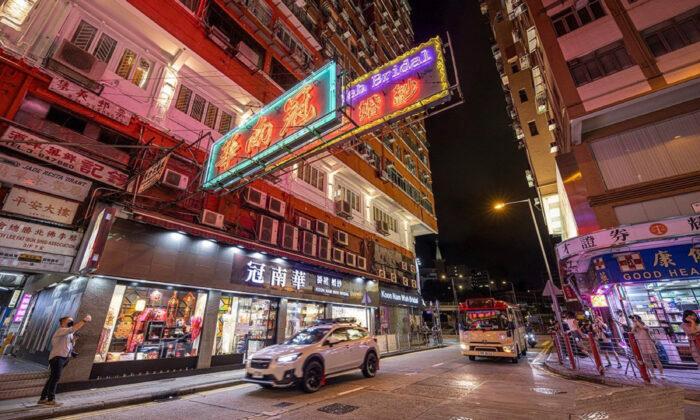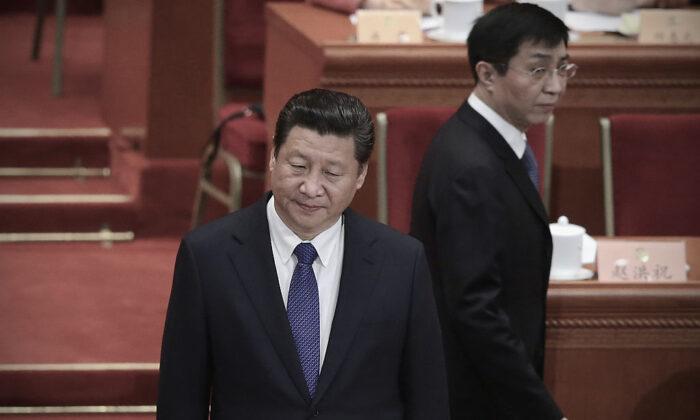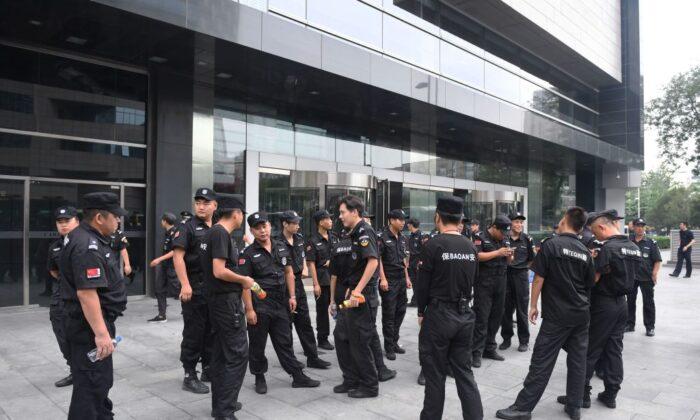WASHINGTON—Secretary of State Mike Pompeo on July 30 announced $113 million in new technology, energy, and infrastructure investments in the Indo-Pacific region as the economic pillar for the Trump administration’s Indo-Pacific Strategy. Some China experts see this as a way to contain communist China’s ambitions in this region.
The new investment includes $25 million to promote digital connectivity, $50 million for energy projects, and $30 million for infrastructure.
Pompeo made this announcement at the Indo-Pacific Business Forum at the U.S. Chamber of Commerce in Washington. He emphasized America’s commitment to the region, and the American definition of “freedom” and “openness,” implicitly drawing a contrast to China’s “One Belt, One Road” initiative.
Pompeo said, “When we say ‘free’ Indo-Pacific, it means we all want all nations, every nation, to be able to protect their sovereignty from coercion by other countries. At the national level, ‘free’ means good governance and the assurance that citizens can enjoy their fundamental rights and liberties.

“When we say ‘open’ in the Indo-Pacific, it means we want all nations to enjoy open access to seas and airways. We want the peaceful resolution of territorial and maritime disputes. This is key for international peace and for each country’s attainment of its own national aims.”
Referring to the Indo-Pacific as one of the greatest engines of the future global economy, Pompeo said that the United States looked forward to working with allies and partners. Although under the BUILD Act that recently passed the House and is now before the Senate, the U.S. government’s development finance capacity would more than double to $60 billion dollars, that is far from enough for Indo-Pacific’s needs, which is $26 trillion for infrastructure by the year 2030.
Pompeo encouraged private investment and promised to help American companies to develop in the region. “No government nor combination of governments has that kind of money. Only the private sector does. ”
Commerce Secretary Wilbur Ross, Energy Secretary Rick Perry, other top administration officials and industry leaders also participated in the forum. Pompeo will travel to Singapore and Indonesia in part to showcase the new initiative.
Frank Tian Xie, a professor in business at the University of South Carolina Aiken, thinks that this new move is very significant. “When the U. S. started to use ‘Indo-Pacific’ instead of ‘Asian-Pacific,’ the geo-political implications are crystal clear.” He believes that the goal is “to contain Chinese Communist expansion and ally with India and other democracies in the process.”
Pompeo avoided directly mentioning China in his remarks, but frequently made indirect implications, saying, for instance, “We seek partnership, not domination. ”
“We aspire to a regional order, independent nations that can defend their people and compete fairly in the international marketplace,” he said. “We stand ready to enhance the security of our partners and to assist them in developing their economies and societies in ways that ensure human dignity. We will help them. We will help them keep their people free from coercion or great power domination.”

Secretary of Commerce Wilbur Ross spoke more directly: “There are more than one belt, and there’s more than one road. There are many belts and many roads to Indo-Pacific. “
Economic analyst Qin Peng, a MBA from Tsinghua University, said that carrying out the Indo-Pacific strategy is a big step for the United States. The “partnership” model is in sharp contrast with China’s “One Belt, One Road” initiative, which “exports” corruption, corrupts local officials of other countries, and undermines those countries’ long-term interests, Qin said.
In contrast, Qin believes that the U.S. initiatives on digital connectivity, energy projects, and infrastructure target the needs of this region and will foster fair and reciprocal relationships, with U. S. companies gaining profits and job opportunities. With the U.S. initiative, competition with China will be introduced into this region, giving countries an alternative.
Qin said that some of China’s previous allies, such as Pakistan, have already felt the ambition for political expansion attached to the “One Belt, One Road” initiative, and have started to worry about their national security and long-term interests. Qin believes Pompeo’s announcement sends a message to these countries and should be welcomed.
Xie believes that America’s new Indo-Pacific initiative will make the U.S. presence in the region stronger and with clearer focus.
“When Secretary Pompeo said ‘we seek partnership and not domination,’ and ‘strategic partnership and not strategic dependency,’ the administration is basically telling the Chinese communists that their fantasy of expanding Chinese communist control and influence, when communism is dying as an ideology worldwide, is nothing but a hallucination,” Xie said.
“The ‘partnership’ era between China and the United States is over and those ‘strategic’ moves by the regime in China are confronted with a clear and determined American resolve, thanks to the emergence of the Trump era. ”




